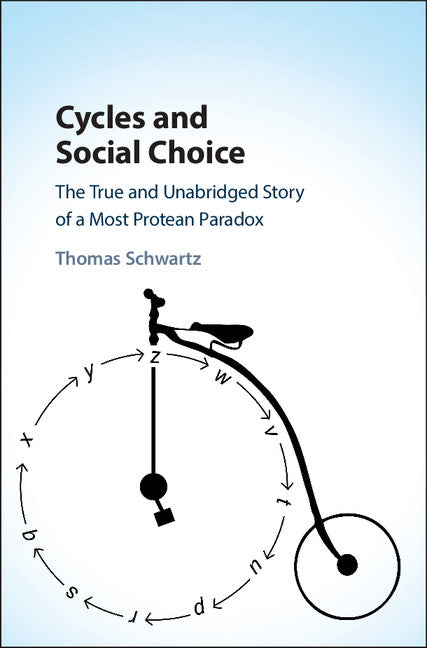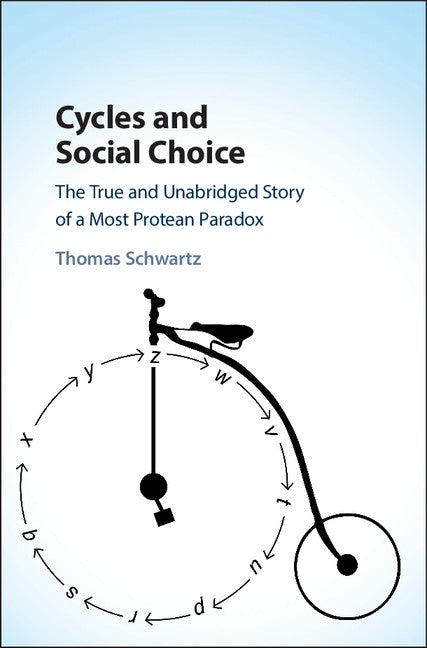Freshly Printed - allow 8 days lead
Couldn't load pickup availability
Cycles and Social Choice
The True and Unabridged Story of a Most Protean Paradox
This book illuminates the sources and consequences of cycles and instability in the mathematical theory of voting and social choice.
Thomas Schwartz (Author)
9781107180918, Cambridge University Press
Hardback, published 22 March 2018
170 pages, 37 b/w illus. 19 tables
23.5 x 15.6 x 1.7 cm, 0.37 kg
'Thomas Schwartz has been one of the handful of most important political science scholars in the formal study of properties of voting and social choice. He has made seminal contributions on topics such as logrolling, agenda manipulation, dimensionality of voting, and cycle sets. This book provides an integrated treatment of Schwartz's contributions over many decades. The ideas in it are relevant to anyone seriously interested in the study of democracy, regardless of whether their interests are primarily theoretical or primarily empirical.' Bernard Grofman, Jack W. Peltason Endowed Chair of Democracy Studies, University of California, Irvine
The centuries-old paradox of voting is that majorities sometimes prefer x to y, y to z, and z to x - a cycle. The discovery of the sources and consequences of such cycles, under majority rule and countless other regimes, constitutes much of the mathematical theory of voting and social choice. This book explores the big questions posed by the paradox of voting: positive questions about how to predict outcomes and explain observed stability, and normative questions about how to hold elections, how to take account of preference intensities, the relevance of social welfare to social choice, and challenges to formal 'rationality', individual and social. The overall lesson is that cycles are facts, ubiquitous, and consequential in non-obvious ways, not puzzles to be solved, much less maladies or misfortunes to be avoided or regretted.
Introduction
1. Condorcet's two discoveries
2. Incidence of the paradox
3. Social rationality
4. Arrovian cycle theorems
5. Second line of cycle theorems: Condorcet generalizations
6. Top cycles in a fixed feasible set
7. Strategic consequences of cycles
8. Structural consequences of cycles
9. Questions about prediction and explanation
10. Questions about prescription and evaluation.
Subject Areas: Political structures: democracy [JPHV], Elections & referenda [JPHF], Political structure & processes [JPH], Politics & government [JP], Social, group or collective psychology [JMH]


